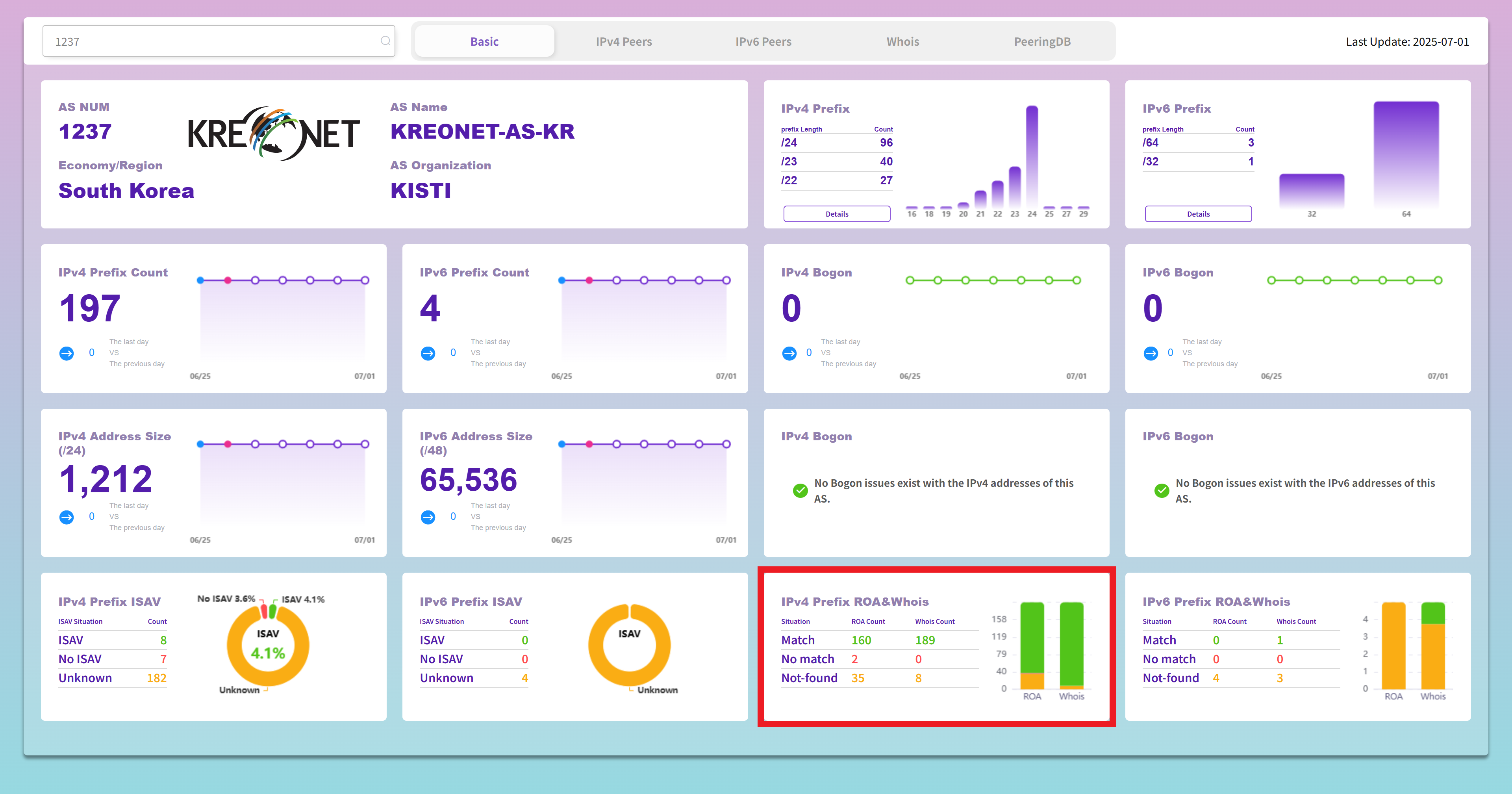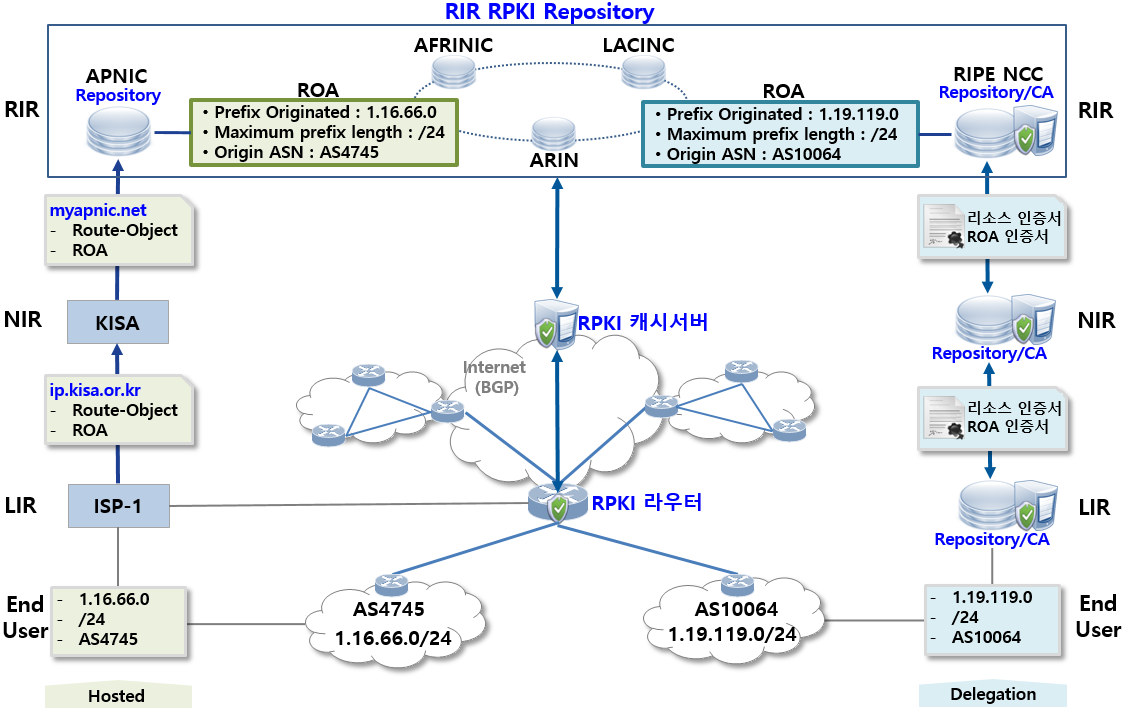KISTI Becomes the First in Korea to Fully Implement Routing Security (RPKI) Across KRONET
배혜림 2025-07-08 View. 6,517KISTI Becomes the First in Korea to Fully Implement Routing Security (RPKI) Across KRONET
- Enhancing network security and reliability by preventing route hijacking and manipulation
- Supporting MANRS implementation and strengthening a secure networking foundation
□ The Korea Institute of Science and Technology Information announced that it has become the first organization in Korea to fully implement Resource Public Key Infrastructure (RPKI) across the Korea Research Environment Open NETwork (KREONET), a national research and education network that supports research data transmission for the science and industrial communities.
□ This initiative was carried out in cooperation with the Korea Internet & Security Agency (KISA). Together, the two institutions established a routing authentication system by generating Route Origin Authorizations (ROAs) for the Autonomous System Number (ASN) of KREONET and enabling route validation. This ensures that IP address advertisements on the network originate only from authorized sources, effectively preventing route misconfigurations or malicious hijacking attempts that can threaten network security.
□ RPKI is a security technology that prevents falsification or tampering of Internet routing information. The Internet uses the Border Gateway Protocol (BGP) to establish communication paths; if routing information is incorrect, data may be misrouted or communication outages can occur. For instance, in 2020, a routing error in Russia caused major global services like Google and Amazon to experience disruptions, while Korea also experienced similar incidents — including the 2021 KT nationwide Internet outage and the 2022 Kakao service disruption. To address such vulnerabilities, countries around the world are increasingly adopting RPKI to build safer and more reliable Internet environments.
□ KISTI’s full-scale adoption of RPKI marks a major milestone in its implementation of MANRS (Mutually Agreed Norms for Routing Security), a global initiative aimed at strengthening Internet security, and represents a key step in enhancing the long-term security infrastructure of KREONET. The initiative will enable more secure high-reliability network services for large-scale data transmission based on AI and High-Performance Computing (HPC), and provide a stable networking foundation to support large-scale collaborative research and international cooperation. Going forward, KISTI plans to further strengthen real-time RPKI validation, automate ROA management, and enhance multi-party RPKI interoperability to expand secure connections with domestic and international partners.
□ The introduction of RPKI to KREONET is not merely a technical achievement but also a symbolic milestone demonstrating Korea’s active participation in the global routing security ecosystem. It is expected to raise awareness among Korean network operators of the importance of routing security and encourage broader adoption across sectors.
□ Buseung Cho, Director of the KREONET Center at KISTI, stated, “The adoption of RPKI will significantly enhance the security level of our research network and reinforce the trust foundation of Korea’s Internet infrastructure,” adding that, “We will continue to develop best practices to encourage the expansion of RPKI adoption across private, public, and local government networks.”

Status of Routing and ROA Implementation in KREONET

Configuration of the RPKI System
Attached files(2)

 Delete Article!
Delete Article!